Recent Blog Posts
Understanding Reckless Discharge of a Gun Charges
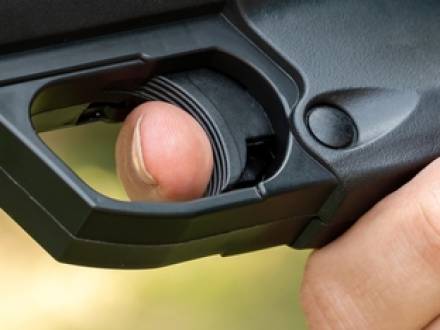 There is a lot of confusion regarding where, when, and why a person may fire a gun. You may have heard that if you are on your own private property, you are always allowed to shoot as long as you are not shooting at another person. Conversely, a lot of people have been taught that shooting a gun anywhere except at a range is illegal unless you are acting in self-defense. Neither of these statements is entirely true. Illinois’s reckless discharge laws are much more nuanced than that. You can be charged with this offense for firing a gun in any situation where shooting carries a risk of injuring another person. If you have been accused of recklessly discharging a firearm, you should consult a Joliet, IL gun crime attorney immediately.
There is a lot of confusion regarding where, when, and why a person may fire a gun. You may have heard that if you are on your own private property, you are always allowed to shoot as long as you are not shooting at another person. Conversely, a lot of people have been taught that shooting a gun anywhere except at a range is illegal unless you are acting in self-defense. Neither of these statements is entirely true. Illinois’s reckless discharge laws are much more nuanced than that. You can be charged with this offense for firing a gun in any situation where shooting carries a risk of injuring another person. If you have been accused of recklessly discharging a firearm, you should consult a Joliet, IL gun crime attorney immediately.
DUI Arrest with a Child in the Car
 Driving drunk with anyone less than 16 years old in the car is an enhanced DUI offense in Illinois. A first offense is still a misdemeanor, but a second is a felony. This law applies to everyone - it is quite common to see it used against older teenagers who are driving around with their peers. However, a lot of those charged with DUI with a child passenger are parents who had their own children in the car. Parents who get arrested for drunk driving while transporting their children are likely to be charged with a felony DUI and may face serious legal consequences, including jail time. If you were arrested for a DUI while your children were with you, you need a highly experienced Will County, IL felony DUI attorney to help you fight for a second chance.
Driving drunk with anyone less than 16 years old in the car is an enhanced DUI offense in Illinois. A first offense is still a misdemeanor, but a second is a felony. This law applies to everyone - it is quite common to see it used against older teenagers who are driving around with their peers. However, a lot of those charged with DUI with a child passenger are parents who had their own children in the car. Parents who get arrested for drunk driving while transporting their children are likely to be charged with a felony DUI and may face serious legal consequences, including jail time. If you were arrested for a DUI while your children were with you, you need a highly experienced Will County, IL felony DUI attorney to help you fight for a second chance.
Fighting Back Against DUI With Child Passenger Charges
Parents who are arrested for DUI with their children in the car often have lower B.A.C.s and are less impaired than the average drunk driver. Most parents do not consume large quantities of alcohol and become belligerently drunk around their children. More commonly, parents are only slightly over the limit after being served a single cocktail that was stronger than expected.
Road Rage Shootings On the Rise in Illinois
 A simple dispute between drivers can escalate quickly into actual violence or firearms charges. In the last few months alone, there have been numerous arrests made related to road rage assaults. Many of these incidents involved firearms, while others involved only vehicles themselves being weaponized. In June, a Naperville motorist was arrested for assault after allegedly drawing a firearm on another driver during a road rage incident. Another Illinois arrest involved a cyclist reaching into a vehicle and stabbing the driver. Drivers on social media have casually reported a large number of aggressive driving incidents that did not result in arrests and may have been politically motivated, although these reports are unverified. If you have been charged with assault, reckless driving, or a weapons offense after a dispute with another driver, you need an experienced Grundy County, IL criminal defense attorney to help you.
A simple dispute between drivers can escalate quickly into actual violence or firearms charges. In the last few months alone, there have been numerous arrests made related to road rage assaults. Many of these incidents involved firearms, while others involved only vehicles themselves being weaponized. In June, a Naperville motorist was arrested for assault after allegedly drawing a firearm on another driver during a road rage incident. Another Illinois arrest involved a cyclist reaching into a vehicle and stabbing the driver. Drivers on social media have casually reported a large number of aggressive driving incidents that did not result in arrests and may have been politically motivated, although these reports are unverified. If you have been charged with assault, reckless driving, or a weapons offense after a dispute with another driver, you need an experienced Grundy County, IL criminal defense attorney to help you.
How Do Breath Alcohol Ignition Interlock Devices Work?
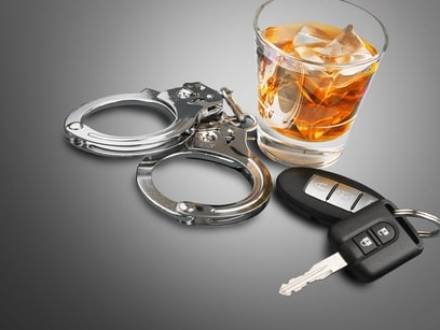 If you have had a DUI charge recently, you may need to have a breath alcohol ignition interlock device (BAIID) installed on your car before you can drive again. These devices are designed to prevent drunk driving by physically preventing an intoxicated person from starting a vehicle and periodically ensuring you are sober while you are driving. While this device is installed on your car, you will not be allowed to drive any other vehicle. Having a BAIID is generally a condition of getting a restricted driver’s permit, and some DUI offenders are required to use them for some time after starting to drive again. An experienced Joliet, IL DUI license reinstatement lawyer can help you apply to have your driving privileges restored.
If you have had a DUI charge recently, you may need to have a breath alcohol ignition interlock device (BAIID) installed on your car before you can drive again. These devices are designed to prevent drunk driving by physically preventing an intoxicated person from starting a vehicle and periodically ensuring you are sober while you are driving. While this device is installed on your car, you will not be allowed to drive any other vehicle. Having a BAIID is generally a condition of getting a restricted driver’s permit, and some DUI offenders are required to use them for some time after starting to drive again. An experienced Joliet, IL DUI license reinstatement lawyer can help you apply to have your driving privileges restored.
Starting a Car With a BAIID
Before you can start your engine, you will need to use the device to measure your BAC by blowing into it. If you are over the limit, your vehicle will not start because the engine is locked. You will need to wait until your BAC goes down enough to try starting it again.
When a Protest Becomes a Riot
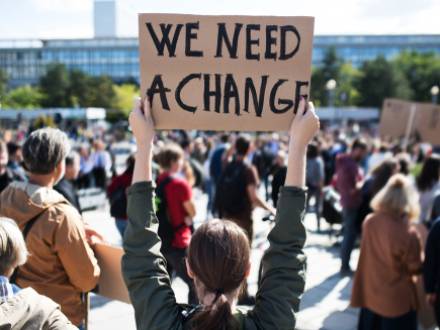 Heated protests are expected nationwide after the election, regardless of the election’s outcome. Especially if you are in or near a major city like Chicago, IL, you are likely to encounter political protestors. Everyone has a constitutional right to free speech, and political speech in particular is heavily protected. However, there are time, place, and manner restrictions on protestors. There is sometimes a fine line between a protected political protest and an unlawful riot. If protestors begin to conduct themselves in a violent manner that causes public alarm, they could be charged with crimes, like looting, disorderly conduct, assault, or obstructing the police. A protest that was meant to be peaceful can quickly turn into a riot when the situation becomes heated. If you are charged with an offense related to a protest, you need an experienced Will County, IL criminal defense lawyer.
Heated protests are expected nationwide after the election, regardless of the election’s outcome. Especially if you are in or near a major city like Chicago, IL, you are likely to encounter political protestors. Everyone has a constitutional right to free speech, and political speech in particular is heavily protected. However, there are time, place, and manner restrictions on protestors. There is sometimes a fine line between a protected political protest and an unlawful riot. If protestors begin to conduct themselves in a violent manner that causes public alarm, they could be charged with crimes, like looting, disorderly conduct, assault, or obstructing the police. A protest that was meant to be peaceful can quickly turn into a riot when the situation becomes heated. If you are charged with an offense related to a protest, you need an experienced Will County, IL criminal defense lawyer.
What Is an Illegal Traffic Stop?
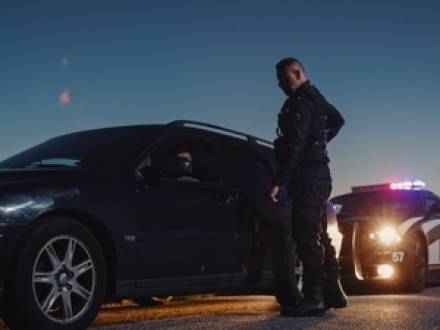 The police cannot simply pull over whoever they want, whenever they want, without a good reason. If you were pulled over illegally, any evidence of a crime the police found during that stop can be thrown out of court. If the only evidence the state has against you is what the police found during an illegal traffic stop, that probably means your case will be thrown out. Illegal traffic stops most commonly result in DUIs, drug possession charges, and weapons charges. If you were charged with any of these offenses following a traffic stop, you need a knowledgeable Will County, IL criminal defense lawyer to help you. There may be grounds for dismissal if you were illegally pulled over while driving.
The police cannot simply pull over whoever they want, whenever they want, without a good reason. If you were pulled over illegally, any evidence of a crime the police found during that stop can be thrown out of court. If the only evidence the state has against you is what the police found during an illegal traffic stop, that probably means your case will be thrown out. Illegal traffic stops most commonly result in DUIs, drug possession charges, and weapons charges. If you were charged with any of these offenses following a traffic stop, you need a knowledgeable Will County, IL criminal defense lawyer to help you. There may be grounds for dismissal if you were illegally pulled over while driving.
The Reasonable Suspicion Standard
To legally make a traffic stop, a police officer must have reasonable suspicion that someone in the vehicle is committing a crime. The crime the officer suspects can be as minor as driving with a broken tail light or not wearing a seatbelt. The police officer must have an articulable reason to think there is illegal activity taking place in a vehicle. The facts used to establish reasonable suspicion must be strong enough to make most ordinary people suspect that a crime is being committed. Traffic stops cannot be based on a hunch or a feeling.
Can You Be Charged With Assault or Battery if the Victim Was Not Injured?
 Assault and battery charges are often associated with an injured victim. When the victim is bruised, bleeding, or has broken bones, it is usually fairly clear to law enforcement that he or she has been battered. However, it is possible to be charged with assault, battery, or both even if the victim is physically unharmed. You do not need to cause real injury to commit an assault or a battery. This type of assault or battery is usually charged as a misdemeanor offense, while a battery involving serious injury is usually charged as a felony. If you are facing assault or battery charges, you need an aggressive Joliet, IL criminal defense attorney to defend you.
Assault and battery charges are often associated with an injured victim. When the victim is bruised, bleeding, or has broken bones, it is usually fairly clear to law enforcement that he or she has been battered. However, it is possible to be charged with assault, battery, or both even if the victim is physically unharmed. You do not need to cause real injury to commit an assault or a battery. This type of assault or battery is usually charged as a misdemeanor offense, while a battery involving serious injury is usually charged as a felony. If you are facing assault or battery charges, you need an aggressive Joliet, IL criminal defense attorney to defend you.
Understanding Assault and Battery Charges
Assault only means causing another person to reasonably believe that you are about to commit a battery against them. This means that you do not even have to touch the victim to be charged with assault. If you did make physical contact with the victim - including causing contact between the victim and an object you were using as a weapon - you would be charged with battery.
How Illinois Residents Can Still Get Arrested for Marijuana
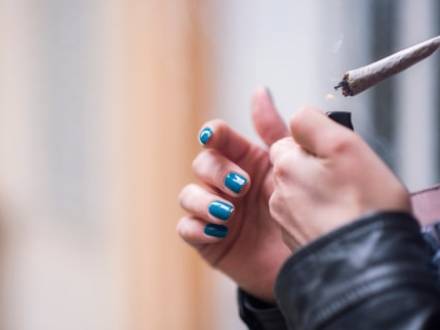 Although recreational cannabis use has been legal in Illinois for years, people are still getting arrested over marijuana-related offenses. Many people who are charged with a cannabis offense mistakenly believe that what they are doing is legal. Unfortunately, not knowing exactly what Illinois’ rather complex laws related to marijuana say is not a defense. However, there is a lot an experienced Joliet, IL marijuana crimes attorney can do to defend you. You may have another defense, like having been subjected to an illegal search.
Although recreational cannabis use has been legal in Illinois for years, people are still getting arrested over marijuana-related offenses. Many people who are charged with a cannabis offense mistakenly believe that what they are doing is legal. Unfortunately, not knowing exactly what Illinois’ rather complex laws related to marijuana say is not a defense. However, there is a lot an experienced Joliet, IL marijuana crimes attorney can do to defend you. You may have another defense, like having been subjected to an illegal search.
Cannabis Crimes That Still Exist in Illinois
Cannabis is regulated much like alcohol is. While having it and using it is legal for adults, there are a lot of rules surrounding how it is sold and who can possess it. A few criminal laws related to marijuana that are still enforced today include:
What Happens if I Get a Second DUI in Illinois?
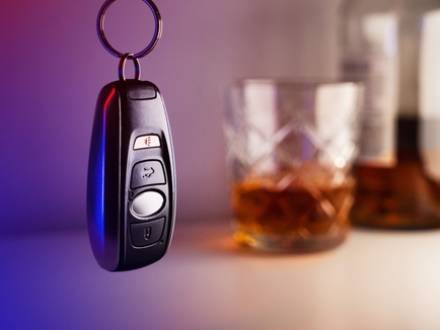 A first DUI can be written off as a simple lapse in judgment or a youthful mistake. The consequences, while painful, are usually not too harsh. Getting a second DUI is a much more serious matter. After a second arrest for driving drunk or high, you are probably going to be almost automatically deemed an alcoholic or addict. The court might start to think that letting you drive might be a risk to the public’s safety. If you avoided jail time the first time, you may not be so lucky the second time. However, you have the same opportunity to defeat the charge that you did the first time. Involving an experienced Grundy County, IL repeat DUI lawyer right away is best way to protect your rights.
A first DUI can be written off as a simple lapse in judgment or a youthful mistake. The consequences, while painful, are usually not too harsh. Getting a second DUI is a much more serious matter. After a second arrest for driving drunk or high, you are probably going to be almost automatically deemed an alcoholic or addict. The court might start to think that letting you drive might be a risk to the public’s safety. If you avoided jail time the first time, you may not be so lucky the second time. However, you have the same opportunity to defeat the charge that you did the first time. Involving an experienced Grundy County, IL repeat DUI lawyer right away is best way to protect your rights.
Consequences of a Second DUI
The consequences of a second DUI in Illinois include:
Can I Be Charged for a Fight I Did Not Start?
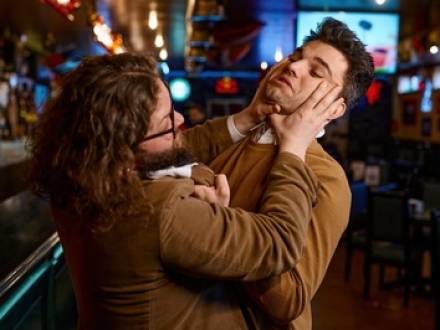 Some people truly are out looking for a fight. Having a run-in with one of them can turn a fun night out into a disaster. Even if you made a good effort to defuse the situation before it escalated into violence, you might still have found yourself caught up in a bar brawl you had no desire to be in. If there were numerous people involved in the brawl, you may not even know what started the fight. While you may have tried to avoid getting in a fight, there is still a chance you could be arrested and charged with assault or battery. An experienced Joliet, IL criminal defense lawyer can help you fight back against unfair charges.
Some people truly are out looking for a fight. Having a run-in with one of them can turn a fun night out into a disaster. Even if you made a good effort to defuse the situation before it escalated into violence, you might still have found yourself caught up in a bar brawl you had no desire to be in. If there were numerous people involved in the brawl, you may not even know what started the fight. While you may have tried to avoid getting in a fight, there is still a chance you could be arrested and charged with assault or battery. An experienced Joliet, IL criminal defense lawyer can help you fight back against unfair charges.
Possible Defenses After Being Arrested for Fighting
If you did not throw the first punch or otherwise start the violence, you may have a good argument for self-defense. If you were attacked first and reasonably believed that you needed to use force to protect yourself or someone else, you had the legal right to do so. However, you cannot prevail on a self-defense claim if you used excessive force beyond what was necessary to stop your opponent from hurting you.

















